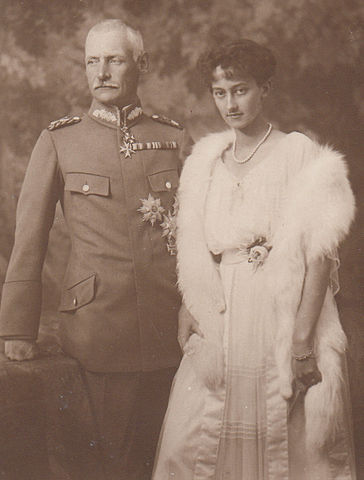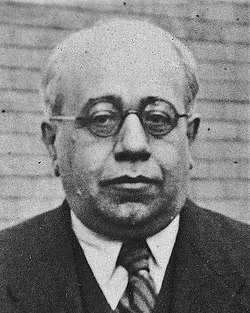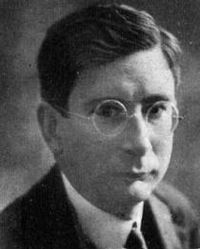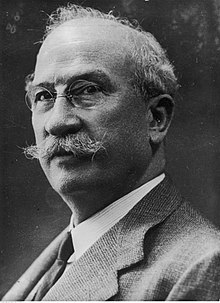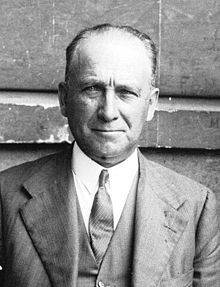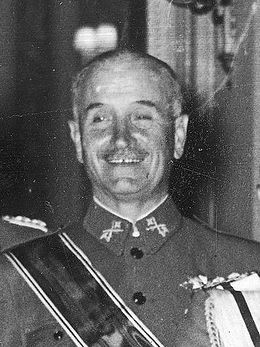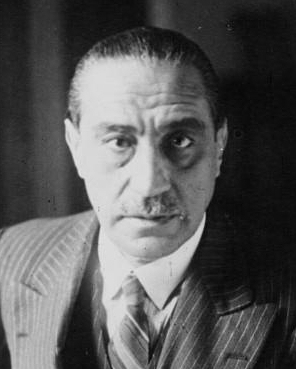Hi. It's been a while since I last updated but here I am. My work on the thread is still slow to advance, but it advances nonetheless. I have at times, when inspiration and RL allowed it, searching through some topics. Here is one update about Spain, one due since at least two months, but that I still got to write formally. I'm currently working on a brief 1920 German civil alluded to in early updates, but I've not yet finished outlinning it.
So, this update is about the developments I see for Spain through the 1920s and 1930s, for which I had the invaluable input from
@Kurt_Steiner for guidance and ideas to formulate it better. I have to admit I was searching this with a more or less avowed goal, that of having Spain within the Fascist Bloc of sorts to arise by mid to late 1930s within the Fascist Cold War narrative I'm pursuing overall in this TL. And I didn't want it to be just a copy paste of OTL Francoist Spain, a way too easy and lazy path, not original enough. However on the whole idea, I wasn't meaning to be dead set on it and was open to alternatives if my idea proved unfeasible or the result was unsatisfying, but that hasn't been the case fortunately, and with Kurt, I came out with a scenario I think is original enough, providing a path for fascist Spain without Franco ITTL, one where the Right take power legally instead of through a coup, kind of switching the OTL roles.
So, a little background, I hope not to incorrect as I make a rough summary. Spain by 1918 is not in the best of shapes, in a sense at least.
Since the
Restoration, the political system has been locked and rigged by
caciquismo and the two party system known as "
turnismo" where the Conservatives and the Liberals would exchange power at each passing election, admittedly to ensure political stability after a period of disorder. However, in 1898, the system is shaked to its core as Spain loses its colonial empire following defeat in the
Spanish-American war. Social and political agitation grow rapidly, Catalonia erupts in flame during the
Tragic Week of 1909, both major parties had split up by the
election of 1914 and minor movemnts, republicanism, socialism, syndicalism, anarchism, autonomism, among others, were on the rise. Though
Spain had greatly profited from the Great War as a neutral nation to vamp up its exports, the social inequalities simmered under the surface, and while Russia was rocked by Revolutions and civil war, it went through a
general strike in 1917 and was hit by
influenza pandemics in 1918.
In order : Spanish surrender at Santiago de Cuba (1898, Spanish-American War) - Barricade in Barcelona (1909, Tragic week) - Labor demonstration (1917, Spanish crisis of 1917) - Advertising for disinfinctant in Spanish street (1918, Spanish flu) - Assassination of Prime Minister Eduardo Dato (1921)
In 1919, while Spain had to suffer from the post war slowdown, another general strike would give way to an eight-hour work day among other concessions. Then, in a typical scenario, the Spanish Socialists split over the issue of the Third International, giving way to a
Communist party in Spain (
even two for a time).
Meanwhile in Morroco, ever since its 1898 loss, Spain had upped its investment and from
1909, intervened militarily on several occasions in the Rif to pacify a region that was negotiated and confirmed by a
1912 treaty into its influence sphere. Yet, Spanish military endeavours here were rather costly and inefficient, and in 1921, the
Disaster of Annual struck. With the Spanish army under Silvestre ambushed and routed by Berber rebels under
Abd el-Krim, all gains made in the previous decade were undone; yet, the war dragged on. Back in Spain, the debate between partisans and opponent of the presence in Morroco was increasingly polarized, and ultimately in 1923, Primo de Rivera took power in a coup. The
stalemate in Morroco would last until Abd-el Krim committed in 1925 the fatal mistake of attacking the French who then joined their forces to the conflict. In 1926, Abd el-Krim surrendered and so went down his short lived
Republic of the Rif.
In order : Bodies of Spanish soldiers on Annual battlefield (Monte Arruit, 1922) - Franco-Spanish landing at Alhucemas (Rif, 1925) - King Alfonso XIII, Primo de Rivera and junta members
Thereafter,
Primo de Rivera's dictatorship went on, smoothly at first, lavishly spending on public projects, but doing so, plunged Spain's finances into red, and eventually managed to alienate everyone. When the Great Depression struck, he was dismissed. The monarchy however didn't survive the stain of its association with the dictatorship and after a Republican breakout in April 1931 local elections, Alfonso XIII left the country for exile, yet without abdicating. Not that this non abdication or even the formal victory of pro monarchy candidates (the Republicans had broken out in cities while monarchists had won in the rural districts) mattered since the Second Republic was proclaimed not long after.
So, that's it for the little-ish background.
What's changing ITTL? In the 1920s, not much really. The late 1918 pod in Russia isn't going to change much to the Spanish domestic situation and to what's happening in Morroco. The Spanish army, eing what it was, is still going to lose it bad at Annual, Primo de Rivera is still going to take power, and there is no reason I see for Abd el-Krim not committing his OTL mistake of taking the fight to the French. So, we are still heading into 1930 then 1931 with the fall of the dictatorship and the Second Republic.
Yet, this not much contains a key development, that changes little until the Republic happens.
As in France, and elsewhere I suppose, the
Communist party was born out of a split with the mainstream Socialists (
PSOE) of the time. In Spain, that was because of the question of the adhesion to the Third International. Because of that split, the Socialists were rid of most radical elements. During the dictatorship of Primo de Rivera, the PSOE under
Julian Besteiro pursued a collaborationnist stance with the regime, endearing it little to other opposition parties, leading to Socialists being out of the
Republican Alliance founded in 1926, a coalition of opposition groups to establish a republican regime, with whom the relations were often marked with distrust, especially from
Alejandro Lerroux. Lerroux'
Radical Republicans would then suffer a split with its left
Radical Socialist wing under
Marcelino Domingo, and the antagonism between Radicals and the Socialists would lead to the end of the
Bienno Reformista and the OTL victory of the right wing
CEDA in
1933 elections.
So,
ITTL,
the PSOE doesn't split. What it does mean is that
the Socialists have a stronger left wing. So when come the time to elect a successor to the defunct
Pablo Iglesias as leader of the PSOE, Julian Besteiro is defeated by
Indalecio Prieto and others, like
Fernando de los Rios, opposed to collaboration with Primo de Rivera. Then
in 1926, the
Socialists under Prieto join the Republican Alliance as a founding member. From that point, though antagonism between Socialists and Radicals is not butterflied away, the collaboration within the frame of the Republican Alliance lessen the tensions and delay any outburst. A first noticeable
consequence is the absence of the Radical Socialist split in 1929, allowing the still united
Radical Republican party to win the general elections of 1931 (IOTL, Lerroux Radicals with 90 seats and Domingo Radical Socialists with 61 seats were, with 151 seats together, outperforming the Socialists and their 115 seats).
Into the Second Republic, I make it giving way to a much different political landscape and government following
1931 elections.
The
Radicals would come on top, with
Socialists a strong second. At this point however,
Francisco Largo Caballero would have taken over PSOE from Prieto, going hard on the left as I suspect him of
political opportunism on this, given his OTL pedigree, I'd see him
radicalizing after he sees his and Besteiro's collaborationist line defeated - while
Prieto goes moderate. This TTL development reflects an OTL one, where in an irony of fate, during 1920s, Largo Caballero was considered the moderate and Prieto the radical, for roles to be switched barely half a decade later. Thus, when it comes to form coalition for government, the more
hard left Socialists under Largo Caballero cannot be convinced into a coalition with center and center-left parties. On their side, the
Radicals are strong enough on their own to get a supporting majority without the Socialists and for the
Radicals' left wing under Domingo to see Socialists' demands for a coalition as unreasonable and not worth a split over the issue, yet.
Meanwhile,
Manuel Azaña's
Republican Action wins more seats since, with Socialists more on the left and the Radical Socialists still sticking to the Radicals and the center, there is a larger room on the center left for Azaña's party to thrive on, yet not to the point of significantly altering the balance of power.
The
result after 1931 elections is a thoroughly centrist government under Lerroux.
In order, figures of the centrist coalition : Manuel Azaña (Republican Action), Marcelino Domingo (Radical Republican), Diego Martinez Barrio (Radical Republican), Alejandro Lerroux (Radical Republican), Niceto Alcala Zamora (Liberal Republican)
The
TTL 1931-1933 period that follows is marked by a
much more moderate tone than Azaña's IOTL. That's primarily
because Lerroux and the Radicals are in command and less prone to "radical" reforms (which is ironical given the party's name). Yet,
tensions are simmering between the center and the center left, and though Domingo hasn't walked out and Azaña begrudgingly supports the government, at some point,
in 1933, the tension would reach its boiling point. The
lack of reform and the impact of the Great Depression eventually bring Azaña to the breaking point, and the
Republican Action to quit the government coalition over some pretext, be it an early Straperlo affair or another scandal or event. This is when the
descent to hell and fascism of Spain begins ITTL, with this being considered the tipping point here because of what follows.
Following the Republican Left defection,
Lerroux gambles on early elections (late spring/early summer I think). But if he
does not lose them technically, he does not win them either - unlike
Azaña whose party has lost many seats to Socialists. Worse even, both extreme left and extreme right, the
Socialists of Largo Caballero and the CEDA of Gil-Robles have surged, making it
mathematically impossible for a government to exist without support from one of them, and that's a support that none are actually willing to lend. At this point, the political situation becomes chaotic.
President Alcala Zamora,
like IOTL, is unwilling to let the CEDA into power, while
Lerroux is open to a coalition with them. The f
irst attempt at a government is entrusted to
Martinez Barrio who tries the minority government path. Yet, Republican Action is refusing another coalition with Radicals, and while Martinez Barrio is willing to extend an hand to the left, he is not willing to go too far, both because he fears losing support from the right wing of Radicals and because Socialists may look too radical yet. That causes
the long delayed split with Radical Socialists to happen, then
the effort collapses all together because of a military coup attempt by Sanjurjo, the
OTL Sanjurjada of 1932 delayed by about a year - because the government has been centrist and moderate instead of the radical OTL one, so the coup happens only when political instability erupts. The
coup attempt is defeated but
Martinez Barrio quits and is replaced by a
returning Lerroux who attempts a coalition with the CEDA, an option reluctantly agreed to by Alcala Zamora on condition of Radicals leading the government. Yet,
Gil-Robles has been all the more emboldened by this chaos not to go along smoothly and demands a high price, purposely to get them rejected. Then,
Martinez Barrio's centrist wing of the Radicals is unwilling to follow Lerroux' further on that path and in turn break away from the Radical party too (which happened
IOTL with the formation of the Radical Democrat party in 1934 on similar grounds). This
leaves Alcala Zamora no other choice than to dissolve again and call a
second early elections later in 1933.
In order, respective leaders of Frente Popular and Frente Nacional : Francisco Largo Caballero (PSOE), Jose Maria Gil-Robles y Quiñones (CEDA)
This
second election of 1933 is marking the failure of the centrist way in Spain, a reflection of "
the center cannot hold". The
failure of the Radicals to reform enough the country and the economic conditions have fostered frustration resentment and the
chaos between both election has seen the political landscape polarizing at a dramatic pace. While the
first TTL elections of 1933 would have been on the narrative of
the Center against the extremes, the narrative of the
second TTL elections of 1933 is Left vs Right, Frente Popular vs Frente Nacional. The result is a
clear win for the Right and Gil-Robles.
Exit President Niceto Alcala Zamora. For all the efforts he put at keeping Gil-Robles and the CEDA out of power, he
gets impeached the same way he was by the Popular Front IOTL, and Alejandro
Lerroux gets elected president in his stead, both as a mean for Gil-Robles to get an inconvenient partner out of sight and for Lerroux to end his political carreer with prestige. The end? Not quite. The
victory of the Frente Nacional inflames further the Left, and like in the so called
OTL Revolution of 1934, we have the
country rocked by chaos.
IOTL,
revolutionary strikes and
Catalonia even seceded in October 1934, when it was revealed the government was intending to include ministers from Gil-Robles' CEDA. Yet, like the Asturian Miners Strike, these were suppressed in a relatively short time, as mobilization didn't go quite far; Catalonia's secession for instance only lasted a few hours. ITTL, this is quite different.
No reformist biennum and the frustration, resentment of
workers and peasants, along a more radical PSOE and a polarized Left lend
more energy to the general strikes and its revolutionary tones. Yet, we are not quite at the point of a full blown civil war, and the
government unleashes the army to "restore order". Enter General
Gonzalo Queipo de Llano.
In order, architect of the "National Republican Dictatorship" : Gonzalo Queipo de Llano (army general), Miguel Maura (Liberal/Conservative republican)
Even though General Queipo de Llano ended up in the Nationalist camp IOTL when civil war broke out, it's good noticing
he began well a decade earlier as a staunch pro Republican officer, involved in plots against Primo de Rivera. Yet, his
carreer prospects dithered under the Republic, and probably
out of resentment, he eventually turned his back on that regime. ITTL, he ends up differently. Queipo was a
close friend and ally of Alcala-Zamora, his son marrying the president's daughter, and had a tendency to get himself involved in politics. His interference cost him his positions due to the left under Azaña getting to him, though he would recover some responsibilities with support from Lerroux and Gil-Robles IOTL, and later, Alcala-Zamora was impeached by this same leftist government that cast him out in the first instance. I mind these may explain, in part at least he would have been holding a serious grudge against the Popular Front. Yet
ITTL, the situation, the context is quite different. Queipo de Llano
hasn't fallen out of favor yet; since the Left hasn't been in power,
his views would have been more in accordance with Lerroux and the Radicals' centrist way, avoiding friction between him and the government, for the time being. Later on however, as the
first elections of 1933 create instability, Sanjurjo attempts a coup, and the Radicals' centrist direction is apparently falling out of favor, you get
Queipo beginning to think; after all, he had already conspired. It so happens that
IOTL in June 1936,
Miguel Maura, son of a former prime minister and liberal right politician, had called for a
National Republican Dictatorship to
save the country from the threat of both extremes, and idea that would
ITTL be formulated three years in advance and be taken up by a "sympathetic" general Queipo de Llano for consideration. However such an idea wouldn't get past the idea and planning stages before the second elections of 1933.
After the second election, first the impeachment of Alcala-Zamora whom Queipo was a close friend and
then the revolutionary general strikes hitting the country, and Catalonia seceding, the events are
inciting Queipo de Llano to "save the Republic".
Thus, we have
Gil-Robles facing a military coup by Queipo de Llano. Still not the end. Just the 'end of the beginning'.
Queipo fails to achieve decisive success and arrest the government. The
hard Left refuses to support him, and
Gil-Robles is still free and active in rallying loyalists against the putschists. Queipo de Llano's avowed goal to set up a National Republican Dictatorship could well have succeed, with
tentative support from moderate parties from center left to center right, even perhaps from Lerroux, ever a political opportunist (and potential back-stabber, but that's a development that's not decided yet), but here, it would be probably
too late, or not enough. Gil-Robles'
repression effort against the revolutionary strikes falters as the army split between pro government and pro junta units, allowing the
Left revolutionaries to recover from whatever losses they may have suffered initially and expand control, and
Queipo de Llano is caught between two factions that are equally unwilling to accept his rule. There,
we begin a three way civil war.
The endgame here, without surprise as I said at the beginning of this post, is meant to be
a victory for government loyalists. I've not settled the details of the how, and how long, but at least I have settled how it would break out. Ultimately,
Gil-Robles will keep on a legalist path of government, but circumstances will drive him
ever more authoritarian as time goes, leading to
Spain becoming a quasi fascist state,
not as monolithic as was Francoist Spain (Gil-Robles' CEDA was not the Falange yet, but these were allies of convenience).
Italian and German support here would be even more open than IOTL as they would be
supporting the official government.
So, to sum it up :
1920/1921 : PSOE doesn't split.
1925 : Indalecio Prieto is elected as PSOE's leader on anti regime platform.
1926 : Socialists join the Republican alliance.
1929 : Radicals don't split.
1930/1931 : The dictatorship collapses, the monarchy is abolished and the Second Republic proclaimed.
1931 : Radicals (Lerroux, Martinez Barrio, Domingo) win general election, make coalition government with Liberal Republicans (Alcala-Zamora, Maura) and Republican Action (Azaña).
1931-1933 : About 20 months of centrist government, with moderate reforms, fail to address properly the Great Depression and appease the people.
1933 : Azaña quits coalition; Alcala-Zamora and Lerroux call for early elections. PSOE and CEDA surge, Radicals fail to form a government and split. Sanjurjo attempts a coup. Second elections give victory to Frente Nacional and Gil-Robles becomes Prime Minister. President Alcala-Zamora is impeached. Catalonia secedes and the PSOE launches a general strike. Queipo de Llano launches a coup, fails to capture the government. Spain descends into a three way civil war between Popular Front revolutionary government (Largo Caballero, PSOE, trade unions, anarchists), National Republican Dictatorship (Queipo de Llano, with ex Radicals, Republican Action, liberal republicans) and the legal Frente Nacional government (Gil-Robles with CEDA, ex Radicals, Falange, Carlists, monarchists ...).
1934 : Meanwhile in Andorra, a Russian adventurer, Boris Skossyref convinces locals to crown him as their king ^^.
Note that I have overlooked developments, including details of what's precisely happening during the centrist period of 1931-1933 and the takeover of PSOE by Largo Caballero, but I'll probably come back to that later on.

